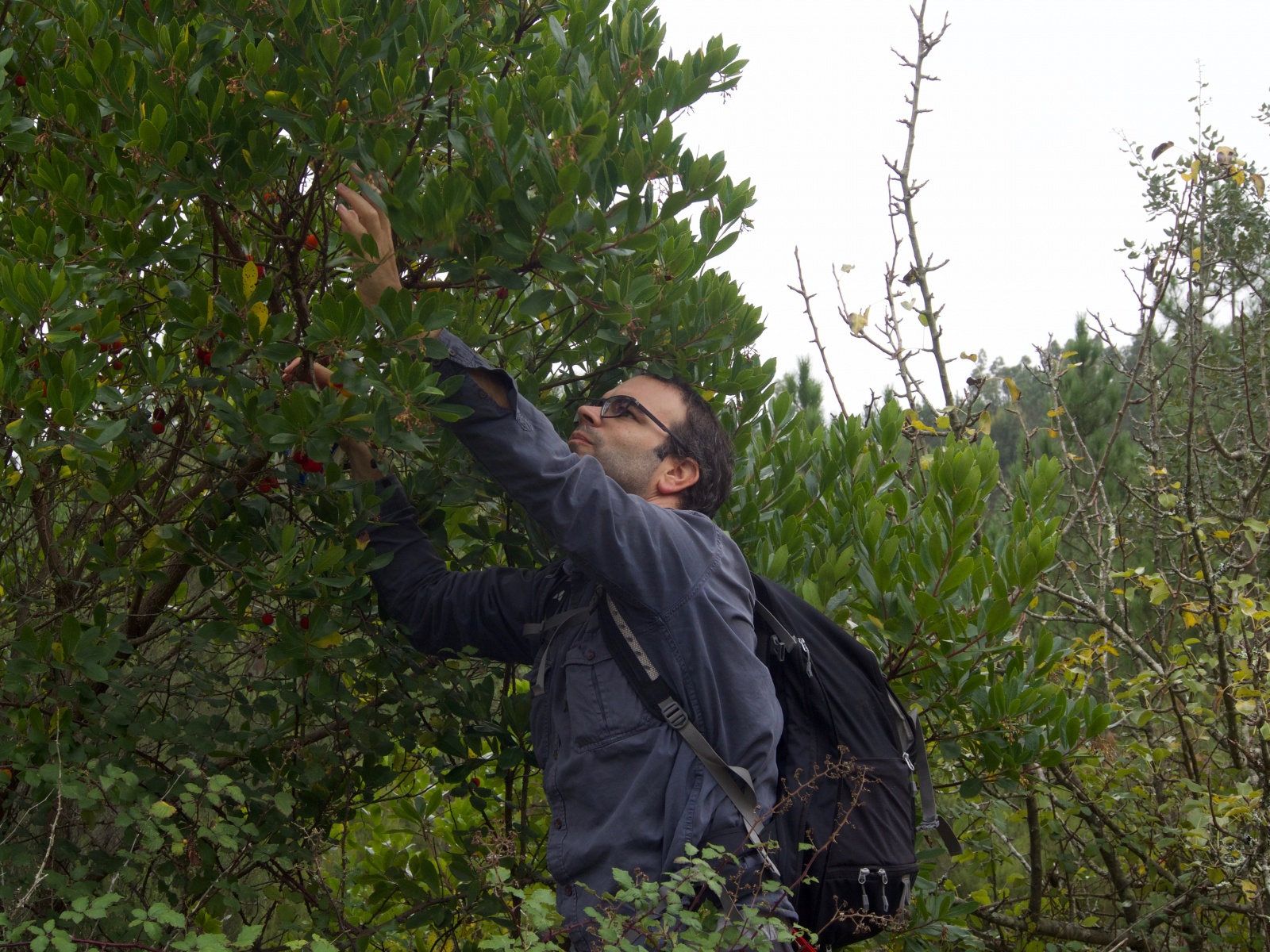
Email
bnevado@fc.ul.pt
Web References
Scopus •
Orcid •
Evolutionary Genetics - EG
Subgroup Leader of Speciation Genomics
Bruno Nevado
Researcher
I received a Ph.D. in Biology from the University of Antwerp, Belgium, in 2011. I conducted my postdoctoral research in the Universitat Autònoma de Barcelona, Spain (2012-2014) and the University of Oxford, UK (2014-2019). I am currently a PI in the Evolutionary Genetics group of the Center for Ecology, Evolution and Environmental Changes.
Biodiversity is unevenly distributed across space, time and taxonomic lineages – my research focuses on understanding the reasons for this pattern. I am particularly interested in revealing the evolutionary processes shaping rapid evolutionary radiations, such as those occurring in continental lakes, oceanic islands and mountain ranges. During my PhD I studied the iconic adaptive radiations of cichlid fish in the East African Great Lakes; and more recently I studied the evolutionary radiations in the genus Lupinus, and a variety of plant radiations spread throughout the world's richest biodiversity hotspots.
My research combines field sampling and laboratory work with bioinformatics analysis using phylogenetic, population and evolutionary genetics methods, to test hypotheses about the driving forces of rapid diversification. Among other interesting results, I have shown how climatic changes affected patterns of genetic diversity and gene flow between species during rapid diversifications in both lacustrine fish and high elevation plants; how natural selection plays a predominant role during rapid species diversification, even in so-called non-adaptive radiations; and how effective population size may play a central role in determining the frequency of natural selection during rapid diversification. In addition to my main research line, I regularly collaborate on the analysis of molecular data in a variety of speciation and adaptation-focused projects involving fish, amphibians, insects, gastropods, mammals and plants; and I have developed different bioinformatics tools and approaches to use NGS data in evolutionary research.
Selected publications:
Fazalova, V. & Nevado, B. (2020) Low spontaneous mutation rate and Pleistocene radiation of pea aphids. Molecular Biology and Evolution, 37, 2045. https://doi.org/10.1093/molbev/msaa066
Nevado, B., Wong, E.L.Y., Osborne, O.G. & Filatov, D.A. (2019) Adaptive evolution is common in rapid evolutionary radiations. Current Biology, 29, 3081. https://doi.org/10.1016/j.cub.2019.07.059
Nevado, B., Contreras-Ortiz, N., Hughes, C. & Filatov, D.A. (2018) Pleistocene glacial cycles drive isolation, gene flow and speciation in the high-elevation Andes. New Phytologist, 219, 779. https://doi.org/10.1111/nph.15243
Nevado, B., Atchison, G., Hughes, C. & Filatov, D.A. (2016) Widespread adaptive evolution during repeated evolutionary radiations in New World lupins. Nature Communications, 7, 12384. https://doi.org/10.1038/ncomms12384
Nevado, B., Ramos-Onsins, S. & Perez-Enciso, M. (2014) Resequencing studies of nonmodel organisms using closely related reference genomes: optimal experimental designs and bioinformatics approaches for population genomics. Molecular Ecology, 23, 1764. https://doi.org/10.1111/mec.12693
Nevado, B., Mautner, S., Sturmbauer, C. & Verheyen, E. (2013) Water level fluctuations and metapopulation dynamics as drivers of genetic diversity in populations of three Tanganyikan cichlid fish species. Molecular Ecology, 22, 3933. https://doi.org/10.1111/mec.12374
Nevado, B., Fazalova, V., Backeljau, T., Hanssens, M. & Verheyen, E. (2011) Repeated unidirectional introgression of nuclear and mitochondrial DNA between four congeneric Tanganyikan cichlids. Molecular Biology and Evolution, 28, 2253. https://doi.org/10.1093/molbev/msr043

